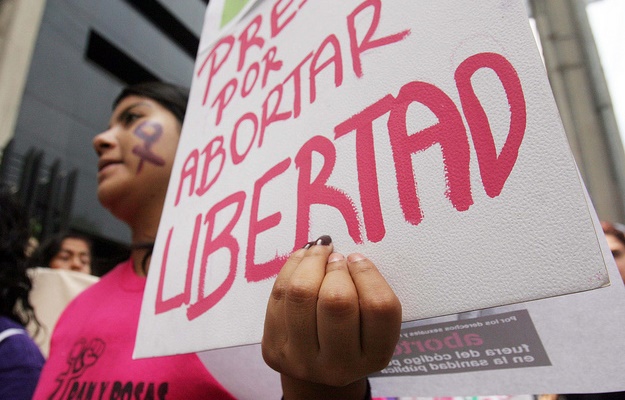Last month, thousands of people in cities across Brazil took to the streets to protest a bill that, among other things, would make it more difficult for rape victims to obtain abortions. In Rio de Janeiro, those protestors gathered just blocks away from the state’s justice tribunal where, less than two years before, more than one hundred couples had taken part in the world’s largest same-sex marriage ceremony.
What explains this disconnect?
Public attitudes and laws on LGBT rights are becoming increasingly liberal in Latin America. Same-sex couples can marry in Argentina, Brazil, Mexico and Uruguay. This year, lawmakers in Chile and Ecuador passed laws allowing same-sex civil unions, and Colombia’s highest court ruled that same-sex couples may adopt. And Argentina, Colombia and Uruguay boast some of the world’s most progressive gender-identity laws: anyone wishing to change gender on legal documents may do so simply by informing a notary public (the U.S. requires anyone wanting to change gender on a passport to submit a physician’s statement).
Women have also made impressive strides. There are three female heads of state – Cristina Fernández de Kirchner in Argentina, Dilma Rousseff in Brazil, and Michelle Bachelet in Chile – and one in four Latin American lawmakers is a woman, the world’s highest proportion. Sixteen countries have gender quotas in their legislatures.
It’s tempting to assume that women’s reproductive rights would be making similar advances. After all, the influence of the Catholic Church is waning – in 2014, 69 percent of Latin Americans identified as Catholic, down from 92 percent in 1970 – and while Protestantism is growing, so are the ranks of those who do not adhere to organized religion. Yet despite advances in LGBT rights and increasing numbers of women in power, abortion remains illegal in most circumstances in most of Latin America (the exceptions are Cuba, Mexico City and Uruguay).
The results can be deadly: the World Health Organization (WHO) reports that 95 percent of the estimated 4.4 million abortions performed in Latin America each year are unsafe, higher than any other region in the world. In 2008, the last year for which there are region-wide figures, the WHO reported 1,100 deaths and one million hospitalizations resulting from unsafe abortions.
So why have abortion rights stalled?
First, same-sex marriage enjoys broader public support than abortion does. In Brazil, for example, 45 percent of the population supports legal same-sex marriage, while only 20 percent thinks abortion should be legal in all or most cases, according to a 2014 Pew Research Center poll. (Americans’ support for legal abortion and same-sex marriage is even, with 55 percent in favor of both, Pew reports.)
Second, women leaders are not necessarily pro-choice: Argentina’s Kirchner, who lambasted the Catholic Church’s opposition of a same-sex marriage bill she supported in 2010, has said she opposes abortion. Brazil’s Rousseff, under pressure from evangelical groups during her 2010 presidential campaign, pledged not to seek to reform the country’s abortion laws. In both countries, abortion is allowed in cases of rape and when the mother’s health is at risk.
Chile’s Bachelet, a physician and former head of UN Women, said during her 2013 presidential campaign that she would “promote policies to reinforce women’s autonomy,” and this January introduced a bill to end the country’s total ban on abortion. However, even that legislation – which would permit abortion in cases of rape and to save the life of the mother – faces fierce opposition in Congress.
One big reason why abortion has failed to garner broader public and political support may have to do with the inherent privacy of terminating a pregnancy. “A major impediment to the extension of LGBT rights was the extent to which being in the closet was a comfortable position,” says Javier Corrales, a political science professor at Amherst College who studies LGBT rights in Latin America. Corrales says LGBT rights improved as more people became open about their sexual orientation, but “the abortion closet is more comfortable than the LGBT closet – you go and have your abortion in secret and nobody needs to know.” That, he says, produces a situation in which women – particularly women who have the means to access safe abortions in private clinics – are less likely to demand broader reproductive rights.
Despite the laws, abortion is remarkably common in much of the region, and access to a safe abortion is largely based on the ability to pay. A 2010 Human Rights Watch report found that nearly half a million, or 40 percent, of pregnancies annually in Argentina end in abortion, many of which are illegal. “There are clinics in every single country where you can get a safe abortion – if you have enough money,” says Marianne Mollmann, the report’s author, who is now a researcher at Physicians for Human Rights. “The stricter the laws, the more expensive” the procedure, she says. As protesters in Rio last month spray-painted on the walls of government buildings: As ricas abortam. As pobres morrem. “The rich abort. The poor die.”
Jocelyn Viterna, a Harvard sociologist who studies reproductive health in Latin America, says in some places the law becomes increasingly difficult to enforce, as many women can now access mifepristone, misoprostol and other abortion-inducing pills through prescriptions (misoprostol can also be used to treat ulcers), mail from abroad or the black market. This means more women can access increasingly safe, if still illegal, medication-induced abortions, which she says may, ironically, reduce demand for a change in laws.
Even under medical care, women still face danger: the threat of criminal punishment makes doctors wary of providing potentially life-saving emergency care when complications from medication-induced and natural miscarriages arise. “There are cases where a woman comes in (with complications), she’s in sepsis, and the doctors wait because they’re afraid of going to jail,” she says. “And women do die, because doctors hesitate.”
—
Danielle Renwick is a writer and editor for cfr.org. Views expressed in this post are her own.








